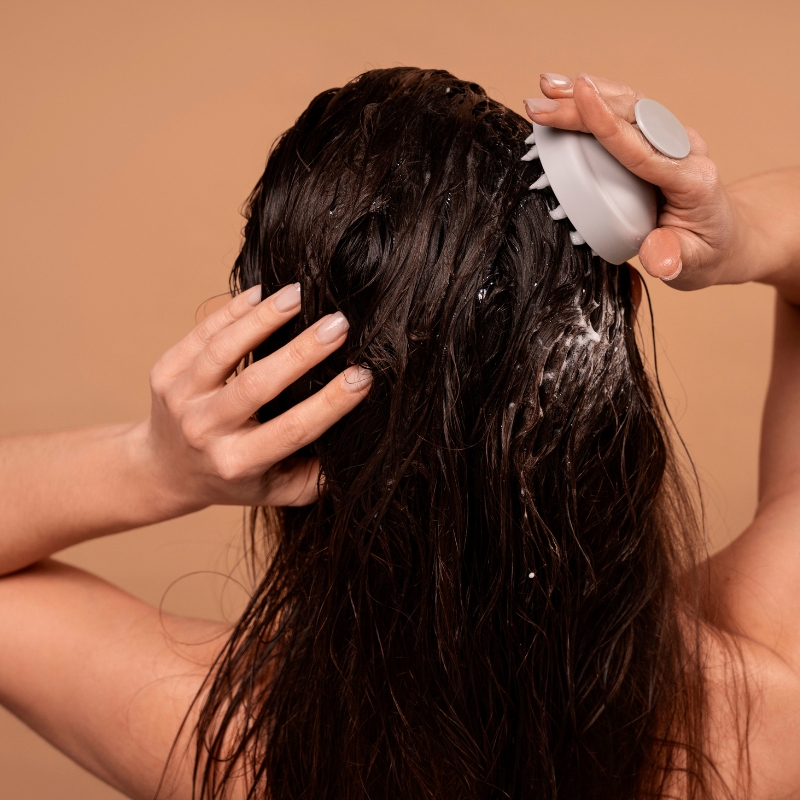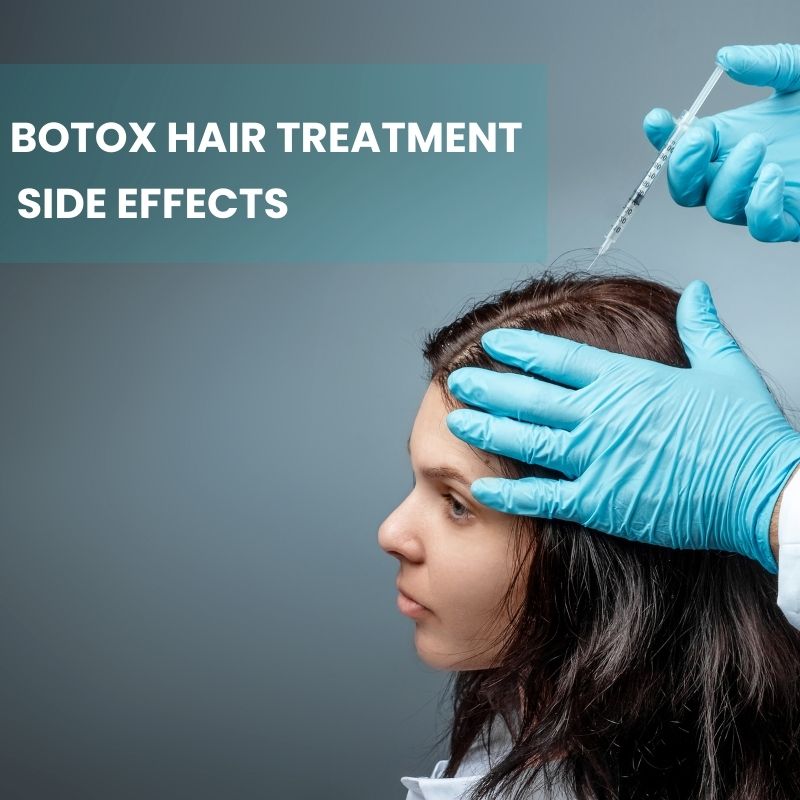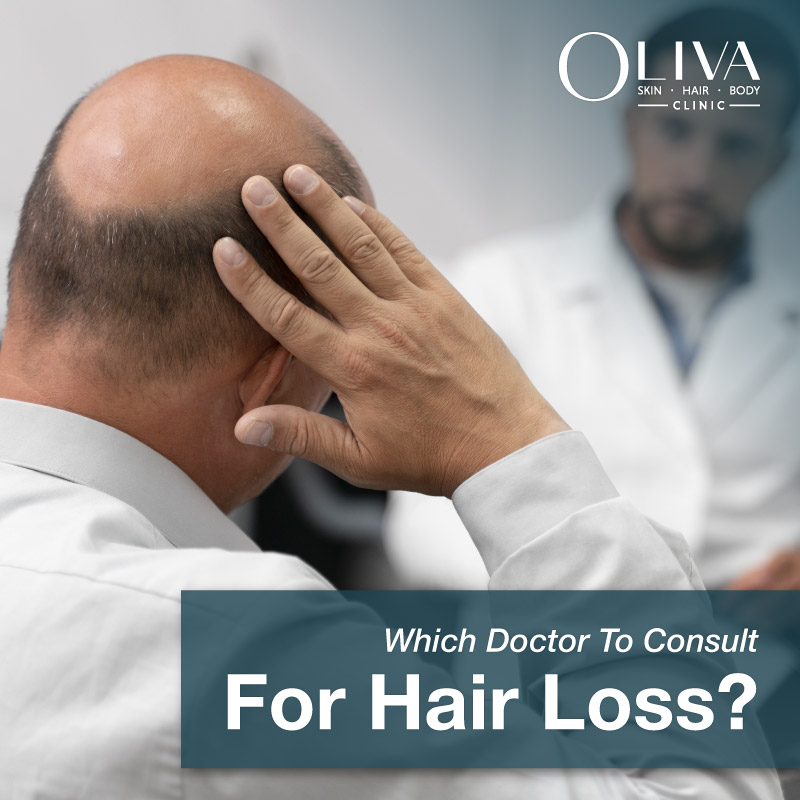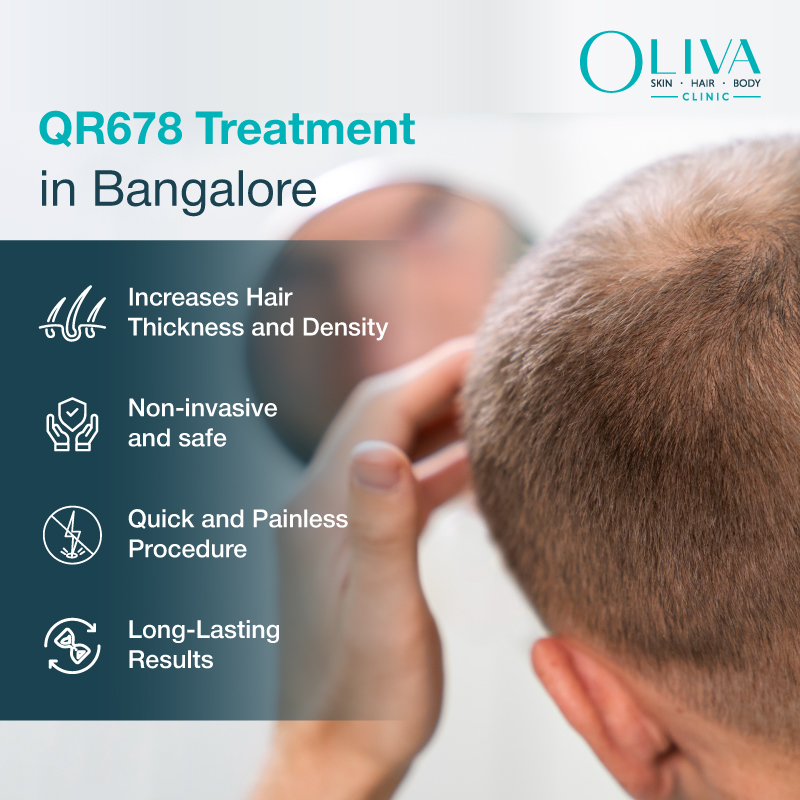In This Article
Postpartum Hair Loss: Causes, Treatments & Prevention
Postpartum hair loss or postpartum hair fall is a temporary condition that most women go through after childbirth. Studies show that over 90% experience postpartum hair loss [1] and in this article, we will learn about the causes, the common signs and symptoms, how to manage it, and when you should visit a dermatologist if you are suffering with postpartum hair loss. Read till the end to find out about treatments that help with postpartum hair fall.
In This Article

What Is Postpartum Hair Loss, And What Causes It?
Postpartum hair loss is a type of telogen effluvium, a form of hair loss that is triggered by a stressful event. In this case, childbirth. During pregnancy, estrogen levels drop, keeping the hair in the growth phase. After childbirth, the hormones recalibrate and the hair enters the shedding phase, causing significant hair thinning and hair loss.
Physical and emotional stress, lack of sufficient quality sleep, nutritional deficiencies, and poor hair styling habits can be some of the factors contributing to postpartum hair fall.
Common Symptoms And Signs Of Postpartum Hair Loss
If you are by postpartum hair loss, you will notice:
- Excessive hair shedding when you wash or brush your hair
- Hair thinning at the temple and crown areas
- Hair starts to look limp, lifeless, dull, or tangles easily
When Does Postpartum Hair Loss Start?
Postpartum hair loss starts approximately 3-6 months post childbirth, [2] which is the amount of time hormones take to recalibrate. But this can vary based on individual health status, breastfeeding habits, and the amount of stress.
When Does Postpartum Hair Loss Stop?
It usually takes 6-12 months after childbirth for the hormones to stabilise, and hair regrowth begins then. [3] If hair shedding persists even after a year, then it is critical to look at any other factors that may be contributing to the hair shedding.
How To Manage Postpartum Hair Loss?
- Stress Management: The body and mind go through massive stress during pregnancy and childbirth. Try managing it by meditating, lightly moving your body, and being mindful so your cortisol levels are balanced.
- Follow A Balanced Diet: Include foods that help maintain your hair health: protein, iron, omega-3 fatty acids, leafy greens, eggs, nuts, and fatty fish.
- Take Nutritional Supplements: Book a consultation with a doctor and check if you should get nutritional supplements that can support your hair health.
- Practice Gentle Hair Care: Build a hair care routine with gentle shampoos and conditioners that suit your hair. Use a wide-toothed comb. Avoid harsh brushing.
- Stay Hydrated: It is easy to forget to drink water when you are stressed, but hydration is necessary to keep your skin and hair nourished. Make sure you have enough water.
- Use Volumising Shampoo: Shampoos with volumising agents make the hair bouncy without weighing it down or flattening it.
- Apply Conditioner Properly: Conditioner is important to hydrate your hair and keep it smooth and soft. Hydrated hair resists breakage.
- Avoid Tight Hairstyles: Tight updos like buns, ponytails, and braids can put pressure on the hair follicles and lead to hair loss. Tie your hair loosely. Opt for layered or short haircuts so your hair appears fuller, thicker, and voluminous.
- Reduce Heat Styling: Avoid styling tools like hair dryers, straighteners, and curlers. Let your hair air-dry. You can also use serums occasionally. Check with a dermatologist who can recommend the best serums for your hair type and concern.
- Get Adequate Sleep: While sleep can be difficult during pregnancy, childbirth, and after, good quality sleep is critical to balance your hormones. Try to get 7-8 hours of sleep for your overall health.
- Massage Your Scalp: Gently massage your scalp to boost circulation and stimulate dormant hair follicles. Make sure that you don’t overdo it.
When To Visit A Dermatologist?
If your postpartum hair fall persists beyond a year and progresses to the appearance of bald patches, an increasing gap in the partition, an irritated scalp, or excessive thinning, we recommend that you see a dermatologist. If you need help managing your postpartum hair loss signs, you can see a doctor sooner.
To book an appointment with experienced dermatologists, click here.
Postpartum Hair Loss Treatments
A dermatologist will analyse your hair condition and the extent of your postpartum hair shedding and will recommend treatments accordingly.
Here are some advanced solutions for postpartum hair fall:
- PRP Treatment: Platelet-rich Plasma treatment involves the use of the individual’s plasma, which is infused with growth factors and injected into the hair loss and thinning areas of the scalp.
- Hair Threads Treatment: In this treatment, dermatologists insert PDO threads into the scalp to stimulate hair regrowth.
- QR678: QR678 Treatment involves the injection of biomimetic peptides that contain growth factors into the scalp to stimulate dormant hair follicles, improving hair growth and density.
- Topical & Oral Medications: Dermatologists may also recommend oral supplements to regulate hormones or topical solutions like Minoxidil.
Takeaway
Postpartum hair loss is natural and temporary. It is also treatable, and the symptoms are manageable. It is important to pay attention to the hormonal changes, how your hair is responding to them and get timely expert advice.
You can book an appointment with us for your postpartum hair loss.
Frequently Asked Questions On Postpartum Hair Fall
Hair loss and shedding can continue due to stress, lack of proper nutrition, or prolonged hormonal imbalance. We encourage you to see a dermatologist if it continues for long.
Yes, it is normal to experience hair loss 4 months post childbirth.
Postpartum hair fall can extend to up to 12 months due to continued stress and nutritional deficiencies.
A drop in estrogen levels around this time can trigger hair loss.
There is not enough scientific evidence that biotin helps with hair regrowth unless the individual is deficient in biotin, which is rare. [4]
Hormonal imbalance, insufficient nutrition, and stress can make hair dry and brittle, which can tangle easily.
There is lack of scientific evidence showing that castor oil can help with postpartum hair fall.
On average, it lasts for 6-12 months, but it also depends on the individual’s stress levels, food habits, hormonal health and how they are managing it.
Hormonal fluctuations could be the reason and it is best you consult a dermatologist.
No, postpartum hair loss does not go on for that long. We recommend that you see a dermatologist immediately.
A dermatologist will analyse your hormonal and nutritional status and recommend the necessary vitamins. Consult a doctor.












